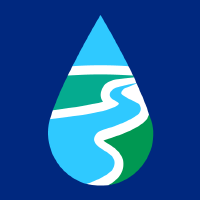Topic Menu
► Topic MenuTopic Editors


Hydrology and Water Resources Management
Topic Information
Dear Colleagues,
Climatic warming is intensifying and complicating hydrological and associated processes worldwide, thereby affecting water security. The coupling of water, sediment, carbon, and nutrients in watersheds is a central challenging bottleneck that needs to be elucidated. The subsequent transport and transformation of waterborne materials can also affect river ecosystem health and greenhouse gas emissions. However, the mechanisms of these processes in response to environmental change is largely unknown. Addressing these problems will contribute to the rational management of water resources and effective response of water disasters in the world. Most countries are facing unprecedented pressure on water resources today. Water scarcity affects more than 40% of the global population, and a deficit of 40% continues to be present between water demand and available supply by 2030. Chronic water scarcity and extreme weather events (floods and droughts) have become the biggest threats to global prosperity and sustainability, associated with rapid economic development. Better understanding the effects of changing environment on water resources is therefore desired to strengthen water security against hydrological uncertainty and anthropogenic complexity.
In this Topic, innovative ideas and new modeling techniques are welcome for assisting hydrological and associated processes and sustainable water resources management from a multidisciplinary background. We encourage submissions on, but not limited to, surface and subsurface hydrological processes and coupled water–sediment modeling, riverine carbon–nitrogen transport, and riverine greenhouse emissions, Trade-off of water–grain–energy–ecological systems and coordinated development of ecology–water–economy, water resources conservation and optimization allocation, water policies adapting to extreme weather events, decision support systems and/or decision-making frameworks, risk assessment on water scarcity and flooding/drought disasters, information systems development for water resources monitoring, modeling, forecasting, and warning, as well as recycling and reuse schemes for storm water, wastewater, and non-conventional water sources are topics of interest.
Prof. Dr. Genxu Wang
Prof. Dr. Hongwei Lu
Prof. Dr. Lei Wang
Dr. Bahman Naser
Topic Editors
Keywords
- hydrological and associated processes
- sediment transport
- riverine carbon and nitrogen cycle
- trade-off of water–grain–energy–ecology
- eco-hydrology
- water sustainable policy
- water security
- risk assessment on water disasters
- monitoring and modeling
Participating Journals
| Journal Name | Impact Factor | CiteScore | Launched Year | First Decision (median) | APC |
|---|---|---|---|---|---|

Atmosphere
|
2.5 | 4.6 | 2010 | 16.1 Days | CHF 2400 |

Hydrology
|
3.1 | 4.9 | 2014 | 15.3 Days | CHF 1800 |

Remote Sensing
|
4.2 | 8.3 | 2009 | 23.9 Days | CHF 2700 |

Sustainability
|
3.3 | 6.8 | 2009 | 19.7 Days | CHF 2400 |

Water
|
3.0 | 5.8 | 2009 | 17.5 Days | CHF 2600 |

Preprints.org is a multidisciplinary platform offering a preprint service designed to facilitate the early sharing of your research. It supports and empowers your research journey from the very beginning.
MDPI Topics is collaborating with Preprints.org and has established a direct connection between MDPI journals and the platform. Authors are encouraged to take advantage of this opportunity by posting their preprints at Preprints.org prior to publication:
- Share your research immediately: disseminate your ideas prior to publication and establish priority for your work.
- Safeguard your intellectual contribution: Protect your ideas with a time-stamped preprint that serves as proof of your research timeline.
- Boost visibility and impact: Increase the reach and influence of your research by making it accessible to a global audience.
- Gain early feedback: Receive valuable input and insights from peers before submitting to a journal.
- Ensure broad indexing: Web of Science (Preprint Citation Index), Google Scholar, Crossref, SHARE, PrePubMed, Scilit and Europe PMC.


